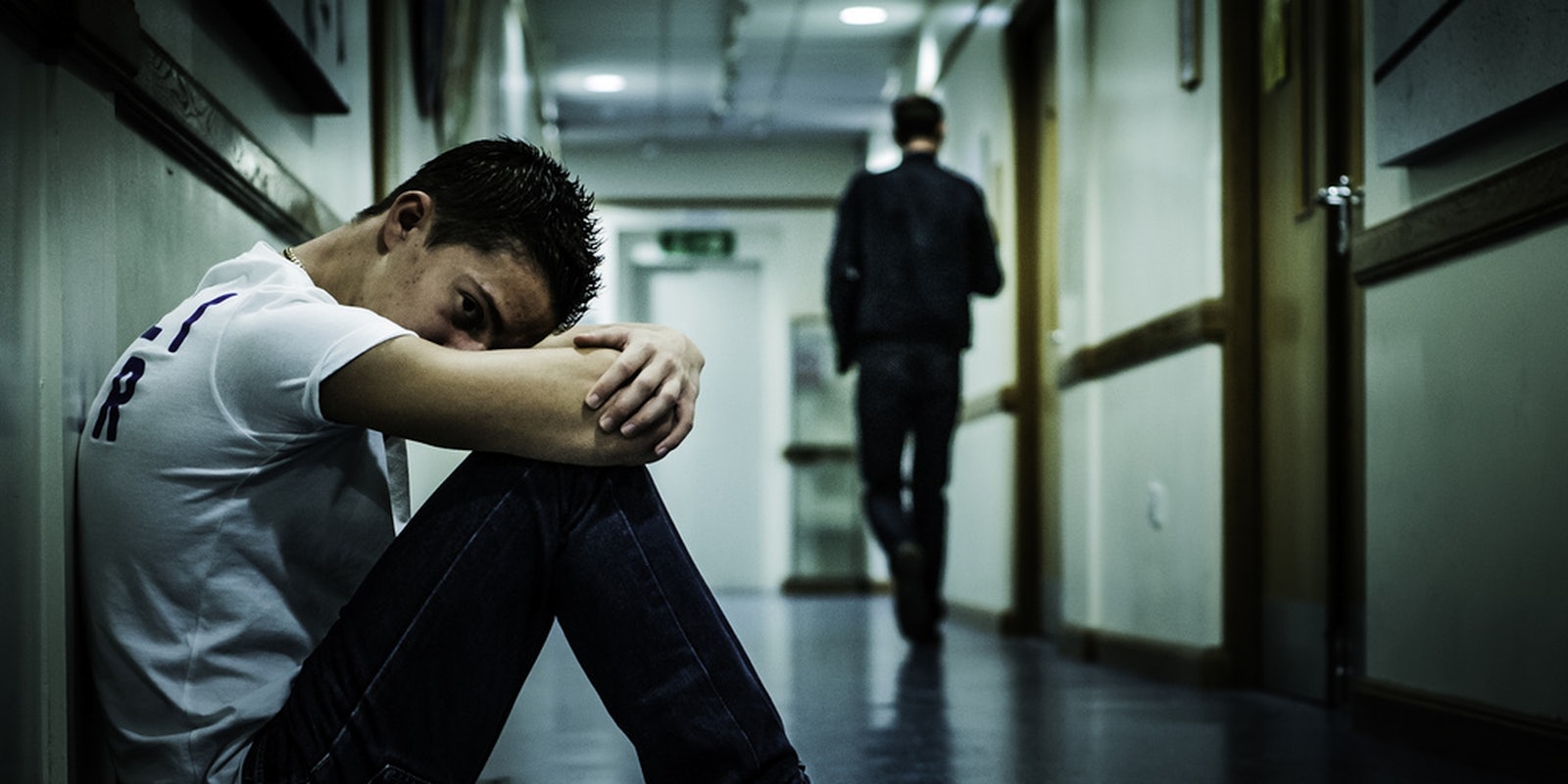Last week, the Internet anti-bullying brigade came out in full force to condemn a “Turning Bullies into Buddies” flyer that was accidentally sent home with fifth grade students at Zeman Elementary School in Lincoln, Nebraska. Basically amounting to a detailed instruction manual for how to turn the other cheek, the handout was so egregiously wrong-headed, it provided an easy rallying point for folks eager to demonstrate they’re on the right side of the issue.
These days, it seems like everybody and their uncle is an anti-bullying activist. Although kids have been bullied for eons, in the last several years, it seems to have become a cause de rigeur, to the point that I’ve wondered whether it’s just a matter of time before bullying gets its own colored ribbon and annual walk-a-thon.
Incidents like the one at Zeman Elementary grab attention quickly because they make activism easy. It’s not hard to establish moral superiority in opposition to someone telling bullied kids not be “sore losers,” and that nobody likes a tattle tale. But I think it’s also somewhat disingenuous.
Because the truth is, the Zeman pamphlet isn’t all that different from advice we’ve been giving children for ages — and continue to give. In her recent criticism of a popular anti-bullying PSA first aired on VH1, Jezebel’s Rebecca Rose shows how our public conversation about bullying is still littered with recommendations to stay quiet, take the abuse, and wait for things to improve in some distant, mythical future, what Rose calls “a dangerous lie that we have been trying to force down children’s throats for years.”
Unfortunately, some of the most vocal opponents of efforts to address bullying are often people who have been bullied. We tell young people, I survived this, and so can you. What other people think of you is none of your business. Maybe these are occasionally good coping strategies for individuals, but they have no relevance whatsoever when it comes to bullying as a social problem.
Having experienced, during my own adolescence, verbal harassment on the basis of my gender expression, I actually hate the word “bullying.” It makes me think of some hot, douchey jock in a teen comedy, who starts out chasing the hero home from school, but who by the end of the film has received his comic, karmic comeuppance.
In other words, I think our language minimizes the issue. Much of what we call “bullying” stems from social inequities and targets aspects of people’s identities, including race, class and ability, as well as sexual orientation and gender identity and expression. I consider this is a form of violence.
As a young person coping with harassment, what helped me most was having a parent who took some of the pressure off me as an individual, by helping me understand that the institutions in my life had a responsibility to keep me safe. Instead of confronting my bullies, I confronted my principle. To politicize my experience felt liberating.
Thanks to the women’s anti-violence movement, many are aware of the distinction between “victim” and “survivor” and the power of shifting our language toward the latter. Ann Russo, a feminist scholar and activist, has suggested a third term: resister. We become resisters when we understand the connection between our individual situations and systemic issues, and join with others to take collective action for change.
Some of my favorite resisters are the young people at the Illinois Safe Schools Alliance, an organization that is a part of the national movement working to make schools safer for LGBTQ students. When Dan Savage was telling young people to sit and wait for their lives to get better, youth from the Alliance were busy passing groundbreaking state legislation, developing anti-bullying toolkits for local schools and filming powerful videos to share their stories.
In recent years, evidence has emerged demonstrating that LGBTQ students represent a disproportionate percentage of school suspensions and expulsions, suggesting that extra-disciplinary measures might not be the most effective mechanisms for addressing homophobic and transphobic bullying.
But this data affirmed, rather than shifted, the Alliance’s work—they had already acknowledged the negative impact of the “school to prison pipeline” upon youth of color, who make up the majority of the organization’s constituency in Chicago Public Schools, and become strong advocates for restorative justice approaches, which are healing rather than punitive.
What the Alliance understands is the importance of transforming school culture. They provide both educators and students with the resources they need to create environments where students respect each other’s identities, challenging issues are discussed openly and bullying is less likely to occur in the first place.
To diffuse an insult through humor is empowering, as many queer people are well aware. But in no way should this be how our schools respond to violence. Youth need opportunities to participate in the creation of safer spaces—not a detailed instruction manual on how to laugh it off.
Tim “TinTim” Jones-Yelvington is a Chicago author, multimedia performance artist and nightlife personality.
Photo via JLMPhotography/Flickr (CC BY 2.0)


